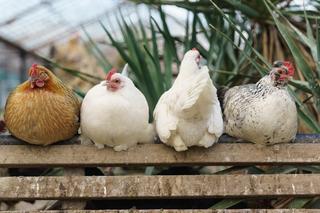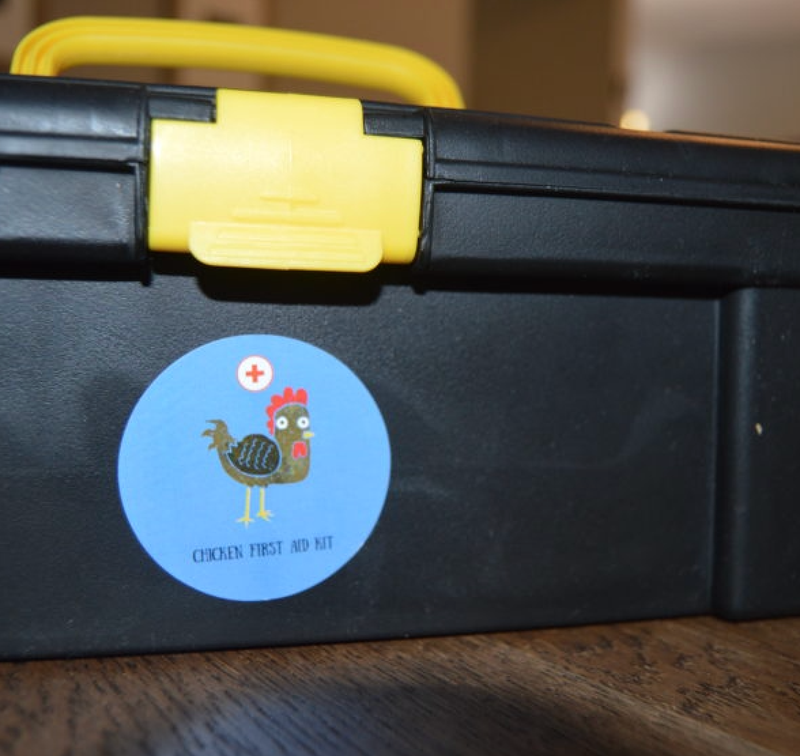How to Care for a Sick Chicken
Chicken First Aid


When it comes to poultry care, understanding the essentials of first aid is crucial for every chicken keeper. Initially, with the most flocks, the focus often concerns wound management and respiratory concerns. However, a well-equipped first-aid kit is indispensable for addressing various issues such as parasites, diseases, dehydration, bullying and predator attacks.
The key is to be prepared before any emergencies arise. Having a comprehensive first-aid kit and area to separate chickens from the flock can mean the difference between saving a feathered friend or facing a heartbreaking loss.
Signs of Illness
Be observant when you watch your flock. Stand quietly for a moment, watch and listen. If a bird doesn’t actively remain with the rest of the flock, it may be the first sign of disease.
Signs of illness include:
- Hunched, head and tail hanging down.
- Reluctant to move.
- Inactive, seeking solitude.
- Noisy, gasping.
- Feathers are broken, rough or ruffled.
- The vent is dry or shriveled.
- Loss of appetite.
- Droppings are runny, smelly or off-color.
Proactive Measures
Taking a proactive approach by incorporating rinses, wraps and herbal remedies can significantly contribute to maintaining a healthy flock. For instance, keeping dried herbs like basil, ginger and dandelion in your chicken first-aid kit can help address minor health issues effectively. Administering these herbs directly into their feed or creating skin washes can provide therapeutic benefits, especially in pecking injuries.
In the winter, chickens and roosters may experience frostbite on their comb, but with specialized ointments like Green Goo, you can effectively manage this condition.
In the summer, you may notice your chickens panting excessively. Cold watermelons are the answer. Watermelon is rich in essential nutrients like Vitamins A, B6 and C, magnesium and potassium. It's a valuable source of carotenoids that enhance egg yolk color and cucurbitacin, believed to have natural deworming properties for poultry. Watermelons are also primarily moisture, which is a wonderful way to keep your chickens hydrated.
It's also essential to isolate sick chickens in a designated recovery area, akin to a "hospital wing," until they fully recuperate.
Essential Items for Your DIY Chicken First-Aid Kit
- Green Goo All-Natural Skin Care Ointment, Animal First Aid: A versatile ointment for abrasions and cuts, aiding healing.
- Oregano Organic Spice Gourmet Herb: Known for its natural antibiotic properties, it benefits overall flock health.
- 3M Vetrap Bandages: Essential for wrapping injuries without sticking to feathers.
- Miracle Care Kwik Stop Styptic Powder Benzocaine Bleed Stop: An invaluable tool to halt bleeding quickly, whether a comb injury or a pecking wound.
- Vetericyn Plus Antimicrobial Poultry Care Spray: Ideal for treating cuts, scrapes and pecking sores among chickens.

Herbs
Keep satchels of medicinal dried herbs in your first-aid kit. These include:
- Basil: Used for thousands of years as a culinary and medicinal herb. It acts principally on the digestive and nervous systems, easing flatulence, stomach cramps, colic and indigestion.
- Wormwood: A very bitter plant with a long history of use as a medicinal herb. It is valued especially for its tonic effect on the liver, gallbladder and digestive system and its vermicidal activity. It is an extremely useful medicine for those with weak and under-active digestion. Be careful that your birds don’t nibble on wormwood but instead use this in their coop to repel mites. Wormwood can be toxic!
- Ginger and Dandelion: Commonly used for digestion issues. Keep some of these dried and add them into feed or free choice.
Additional Supplies for Comprehensive Care
In addition to the core items, consider stocking up on disposable gloves, super glue, VetRX for respiratory issues, Blu-Kote to conceal blood on combs and other essentials like gauze pads, nail clippers and electrolytes. These items can prove invaluable in various emergencies.
While many chicken health issues can be managed at home with proper first aid, conditions like egg binding or severe injuries necessitate professional veterinary care. Engaging with online backyard chicken communities on social media can offer valuable insights and support during challenging times, especially when dealing with predator attacks or rare health concerns.
By being well prepared and informed about chicken first aid essentials, you can ensure the wellbeing of your feathered companions and handle common health issues with confidence and care.
Tags:Chicken Chatter

Acreage Life is part of the Catalyst Communications Network publication family.
















